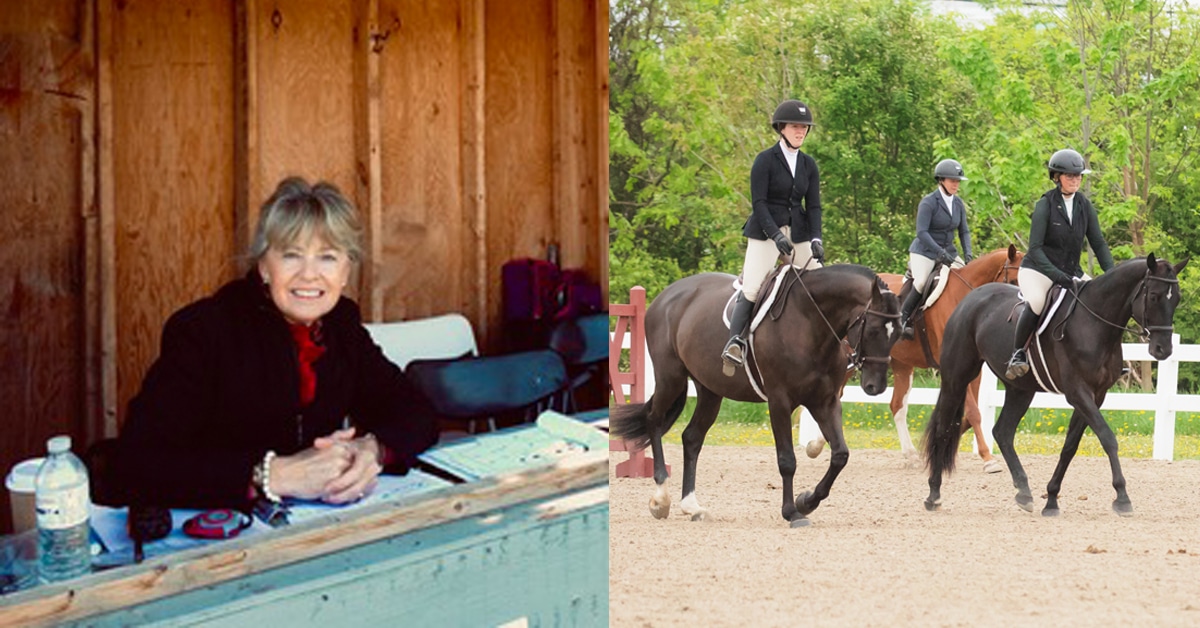It’s perfectly natural to feel anxious about riding after a fall. Even having a close call or seeing someone else fall can affect your confidence. Our brains are wired to keep us safe. So when we experience or witness a situation that our mind perceives as potentially harmful to us, it automatically sets off our built-in warning system. That fear trigger is hardwired into our brains.
Many adult riders even find they feel anxious without having a fall or a negative experience. The fear can come simply from knowing that you can’t afford to get hurt because of your age, physical condition or life responsibilities (e.g. being a caregiver to children or elderly parents, or being the sole income earner).
Regardless of what has caused your loss of confidence, following these seven steps will help you to rebuild it:
1. Be kind to yourself. Remember that fear is perfectly natural. Beating yourself up for feeling anxious only makes you feel worse about yourself. And that decreases your confidence. Instead, tell yourself what you would say to support a friend to help her feel better if she was the one feeling the way you do.
2. Analyze what caused the fall (or other scary situation). Figuring out the root cause of the experience helps you figure out what steps you need to take next. For example, if your horse bucked or bolted, was it because he was in pain from a poorly fitting saddle? Or was he tense because he was over-faced? If you had a fall, was it because your position in the saddle is not secure? Resolving the cause is a concrete way to increase your safety.
3. Go back to the basics. If you’ve had a fall or scary experience, you may find that you’ve lost trust in your horse or your own riding abilities. Going back to basics helps to fill in any gaps in your horse’s training or your riding. Investing time doing groundwork exercises to improve your horse’s posture, taking riding lessons on the lunge line to improve your position in the saddle, or doing lots of ridden work at the walk can help you can regain trust in both yourself and your horse.
4. Avoid playing negative mind movies. Whether or not you’ve actually had a bad experience or simply worry you might in the future, makes no difference to your unconscious mind. Every time you replay a mental mind movie, see scary pictures in your mind or talk about a negative experience, you reinforce in your mind that riding is dangerous. Your fear will be triggered, causing you to feel anxious.
5. Imagine the outcome you want. Your brain can’t tell the difference between a real event, a memory or an imagined event. Create a mind movie, a mental picture or a story where you feel excited about riding and are having a positive experience with a happy ending. Replay that “experience” over and over. This is much more than positive thinking. It’s the same type of mental rehearsal that professional and Olympic level athletes use to mentally prepare for competition.
6. Learn where your comfort zone is and expand it safely. Notice what activities you can do without feeling any level of anxiety. That’s your comfort zone and it’s your starting point. Then notice the point at which you start to feel a low level of anxiety, but can still think straight and release tension from your body. That is your learning zone. Beyond your learning zone is your anxiety zone. This is where you become overwhelmed, unable to think clearly and even physically freeze up. To build your confidence, you need to move between your comfort zone and learning zone without going into your anxiety zone.
7. Hire a coach. Getting help from a riding coach who is experienced with helping riders who have lost their confidence can really speed up your recovery. She will gently help you expand your comfort zone and fill in any holes in your and your horse’s training. An equestrian mindset coach will give you the additional mental tools to change your anxiety into excitement about riding again.
The Latest









